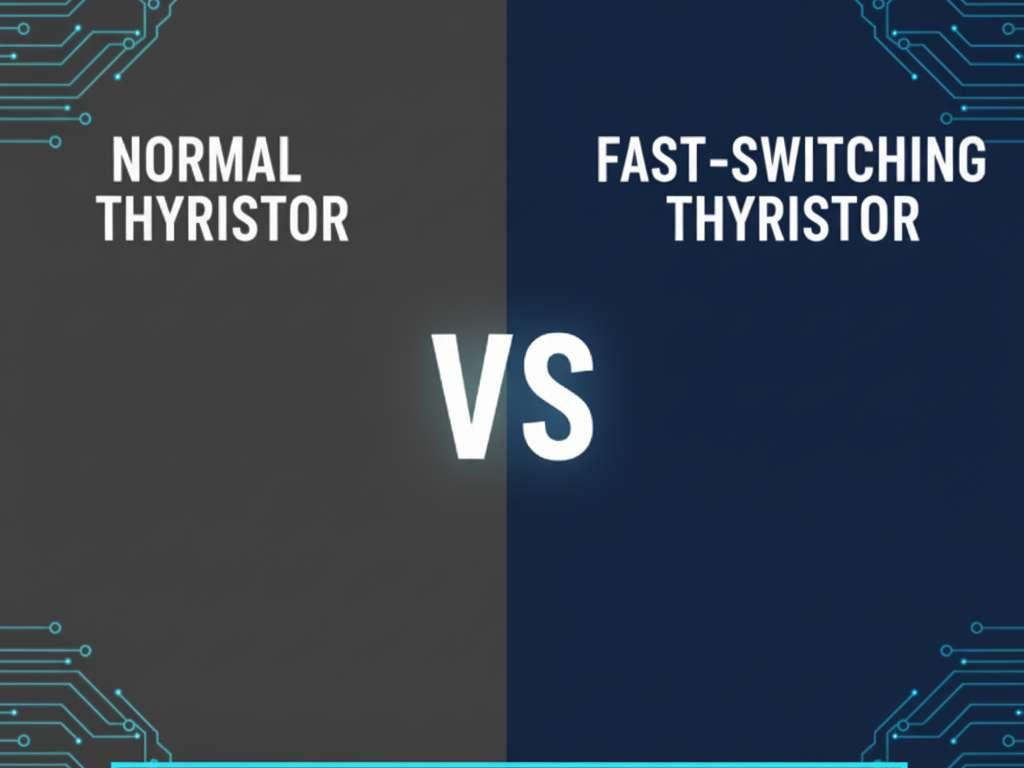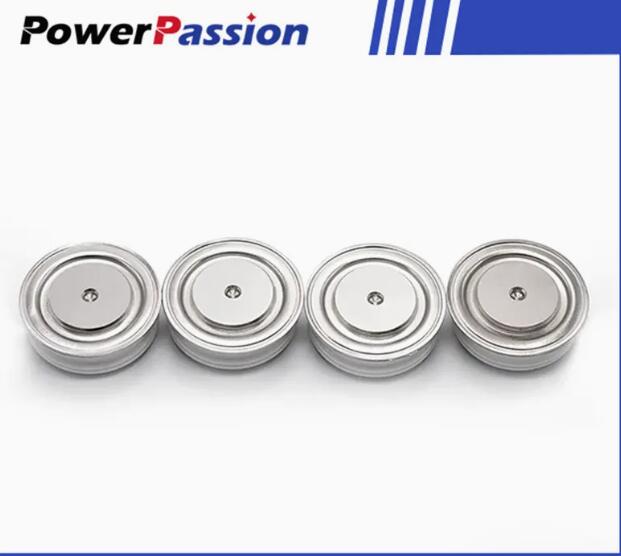Views: 0 Author: Site Editor Publish Time: 2025-10-16 Origin: Site









If you've ever looked for industrial thyristors online, you've probably come across the term “Fast-Switching Thyristor” or “Fast SCR.”
It sounds powerful and advanced — but what exactly makes it different from a “normal” thyristor?
And more importantly: how do you know if your equipment actually needs one?
Let's break it down in simple terms and find out how to select the right SCR for your system.

A Fast-Switching Thyristor (FST) is a silicon-controlled rectifier designed to turn on and off more quickly than standard types.
It uses optimized semiconductor structures with lower charge storage, which allows it to recover faster after each conduction cycle.
In practical terms, this means it can handle higher switching frequencies— typically from several hundred hertz to a few kilohertz — compared to standard SCRs, which are designed for low-frequency or steady DC control.
That makes FSTs ideal for:
Induction heating and melting furnaces
High-frequency inverter power supplies
AC voltage regulators
Fast welding machines
Medium-frequency converters
According to Wikipedia’s overview on thyristors, the switching speed (turn-off time)of an SCR determines how quickly it can respond to changing signals — a key factor for inverter and converter applications.
While both devices share the same basic structure — a four-layer PNPN junction — their internal characteristics are tuned for different jobs.
| Feature | Normal Thyristor (Standard SCR) | Fast-Switching Thyristor (FST) |
|---|---|---|
| Turn-off time (tq) | 100–200 µs | 20–50 µs |
| Operating frequency | Low (50–200 Hz) | Medium–High (up to 1 kHz+) |
| Thermal endurance | Excellent | Moderate |
| Response precision | Slower | Very fast, tight control |
| Best for | Heating control, rectifiers | Inverters, converters, welding |
| Typical cost | Lower | Slightly higher |
As one engineer on the EEVblog Forum explains:
“If your system needs to modulate power hundreds of times per second — like in an induction furnace — a fast-switching SCR isn’t just better, it’s necessary.”
In short, normal SCRs are built for endurance under heavy loads, while fast-switching SCRs are optimized for precision and speed.
Selecting the correct SCR isn’t about buying the most expensive one — it’s about matching the device to your system’s operating needs.
Here are four key things to check:
Turn-off time (tq) defines how quickly the SCR can stop conducting once the gate signal is removed.
If you’re designing an inverter or frequency converter, look for tq < 50 µs.
Always confirm that the SCR’s repetitive peak voltage, average current, and surge current exceed your system’s maximum values.
This ensures long-term reliability even under overload or surge conditions.
Fast-switching means more transitions per second — which can generate extra heat.
Disc-type SCRs, with their double-sided cooling structure, help maintain stable junction temperatures and longer device life.
Datasheets alone don’t guarantee success.
Your supplier should understand both the electrical and mechanical requirements of your system — from gate drive matching to mounting torque.
A good partner helps you prevent the same failure from repeating.

At PowerPassionElectric, we combine decades of semiconductor manufacturing experience with practical application support.
Our KP-Series Fast-Switching Thyristors are designed for performance, durability, and value:
Turn-off time under 50 µs, suitable for converters and inverter circuits
Wide operating temperature range: –40 °C to +150 °C
High surge tolerance: up to 46,800 A
Disc-type design for dual-side heat dissipation
Custom voltage and current options (500 A – 2000 A)
They’re widely used in vacuum furnaces, induction heating systems, and power conversion units — providing reliability close to international brands, but at far more competitive pricing.
Contact our team for model selection advice.

Wikipedia – Thyristor Overview
EEVblog Forum Discussion – “Fast vs Standard SCRs in Inverters”
but when your system demands fast response, precise control, and stable power delivery, they make all the difference.
Before you buy, ask yourself:
Does my system operate at medium or high frequency?
Do I need tighter control over output power?
Am I using the correct package type for heat management?
If the answer is yes — you’re ready for a fast-switching SCR.
with PowerPassionElectric, you get expert support, factory-level customization, and proven reliability at the right price.
